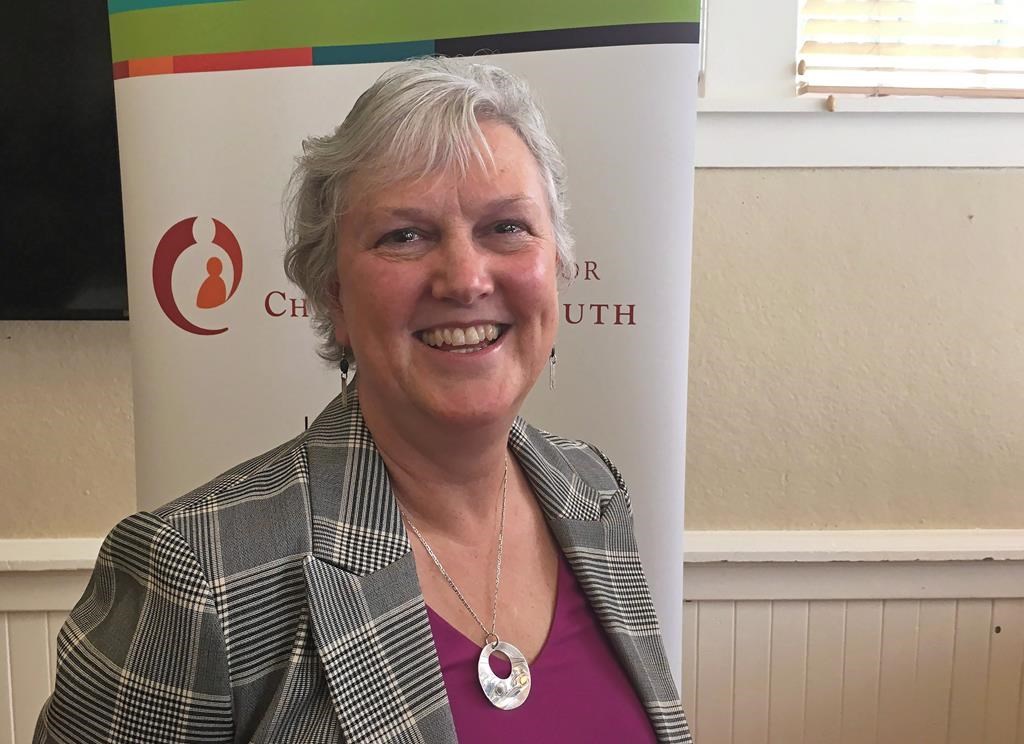British Columbia’s representative for children and youth says the system of funding child welfare services for Indigenous kids is “deeply flawed” and there’s an urgent need to overhaul practices to make data accessible and transparent.

Jennifer Charlesworth said information from the Ministry of Children and Family Development makes it impossible to compare allocation of funds for First Nations, Metis, Inuit and urban Indigenous youth with non-Indigenous service providers.
An analysis of provincial and federal fiscal systems by the Institute of Fiscal Studies and Democracy at the University of Ottawa showed the Children’s Ministry can’t definitively provide information on how much of the federal funding it gets reaches First Nations, she said.
“The necessary information is simply not tracked,” Charlesworth told a news conference Tuesday, when she released a report with “troubling” findings related to the human rights of thousands of children.
“It is fiscal discrimination, and the ministry needs to fix this,” Charlesworth said.
Indigenous children make up 68 per cent of those in government care even though they represent 10 per cent of the province’s total child population, she said.
“It would be problematic at any time, but it is especially so in an era of reconciliation. Without knowing how much money is spent on Indigenous child welfare and what the outcomes of those expenditures are, how can any assessment be made of how well First Nations, Metis, Inuit and urban Indigenous children and families are being supported in B.C.?”
A hodgepodge of different levels of funding is allocated based on whether a young person lives on- or off-reserve, and whether First Nations work with their own child and family services agencies, Charlesworth said.
For example, 120 on-reserve First Nations affiliated with such agencies get federal funding, but families that live off-reserve are funded by the province at much lower rates, she said.
Agencies that serve children living both on- and off-reserve get a percentage of money from both governments, while a separate funding regime exists for 84 First Nations that do not have their own service agencies.
A ruling by the Canadian Human Rights Tribunal in 2016 determined funding for on-reserve children was discriminatory, forcing the federal government to pay the actual costs of child welfare services.
The federal government announced a settlement in January after a 14-year court battle, saying half of the $40 billion in agreements in principle is expected to start flowing to Indigenous groups on Thursday.
Charlesworth said that will exacerbate the negative impact on B.C. children who will not get that funding.
Children’s Minister Mitzi Dean said reports by both the representative and the fiscal studies institute raise long-standing issues that the province has been working to address with the federal government and the First Nations Leadership Council.
“Our tripartite working group is the only one of its kind in Canada,” Dean said in a written statement.
“We are committed to continuing the important work we have begun together with our partners on a new fiscal framework that will ensure equitable funding for Indigenous children, youth and families in our province.”
Charlesworth has made three recommendations, calling on the ministry to negotiate a transparent funding model with the 84 First Nations that don’t have child and family service agencies.
She also wants the ministry to collect race-based data in order to understand the diverse needs of the Indigenous populations it serves, based on a 2020 report by the province’s human rights commissioner.
Mary Teegee, the B.C. representative on the National Advisory Committee for First Nations Child and Family Services, said issues like an adequate number of social workers need to be resolved.
The province’s guidelines on child welfare say there should be one social worker for 27 kids but in some cases that number climbs to 60 children, Teegee said.
“No longer is it acceptable that one child, just by virtue of where they live, is funded at a different and a higher rate than another child. That is abhorrent that it still happens in this day and age.”



Comments